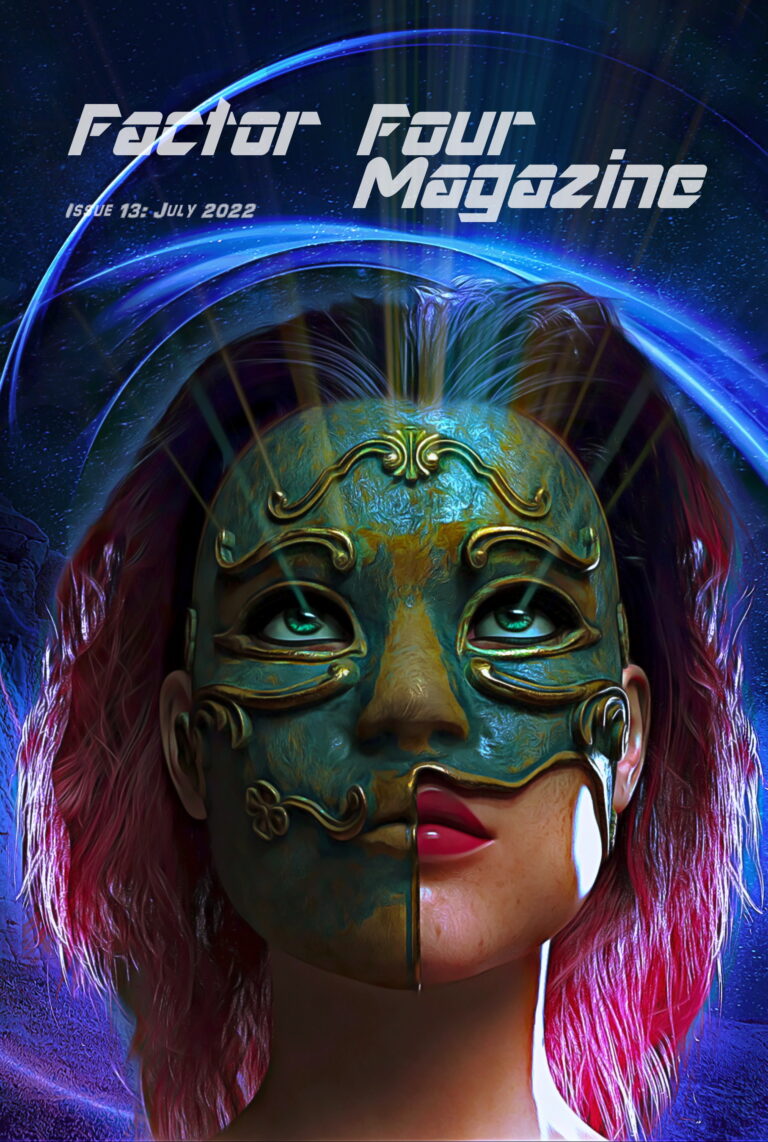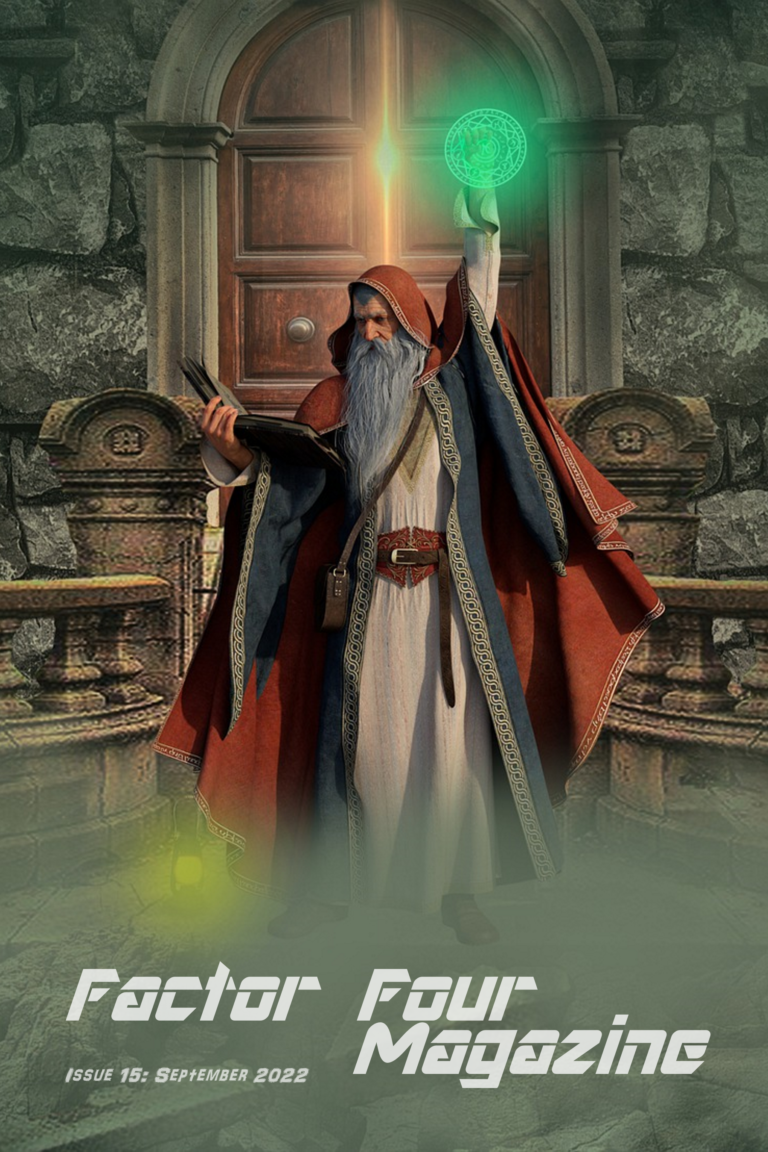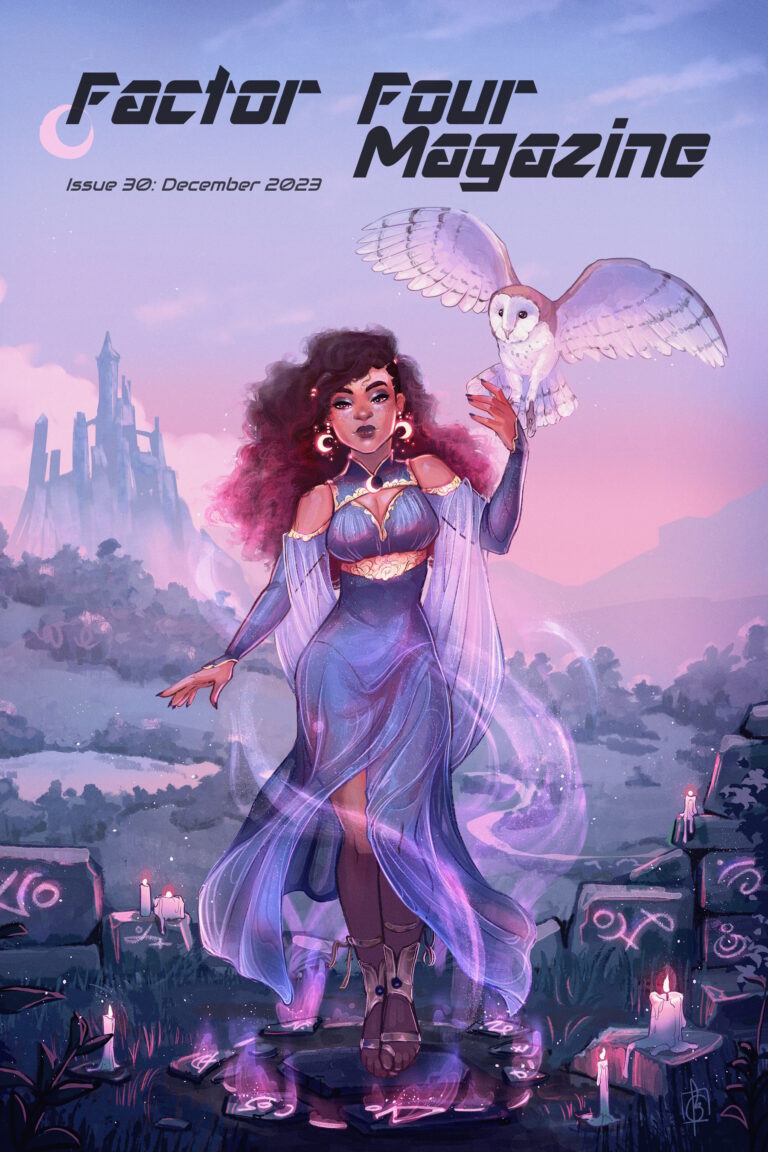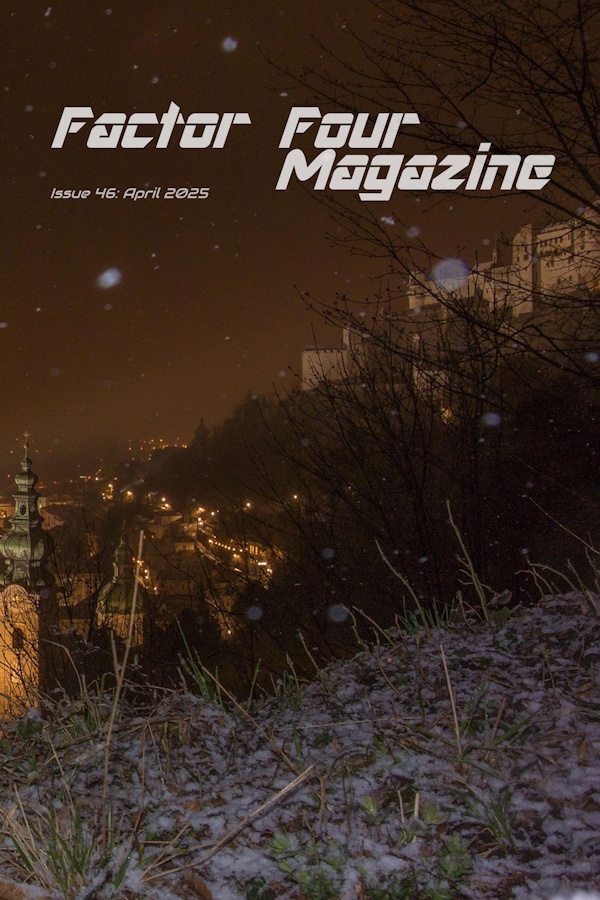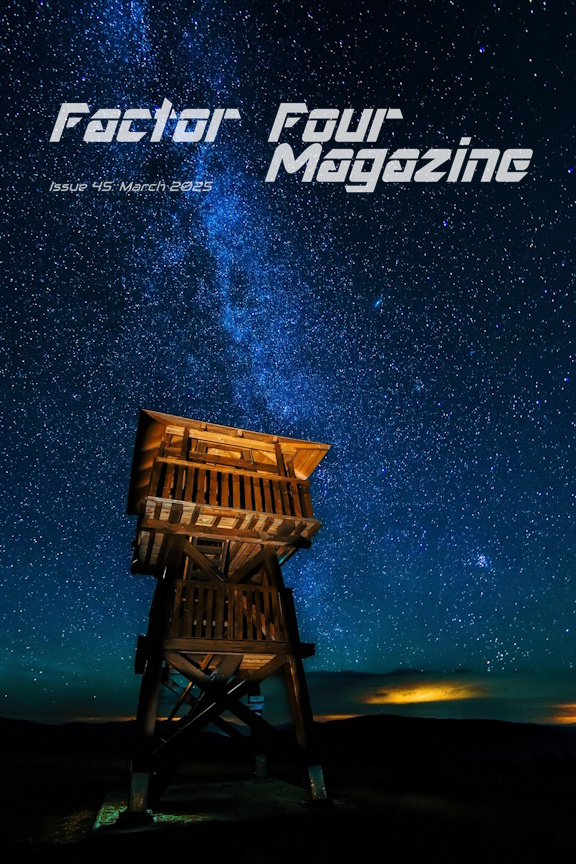A Thousand Masks to Wear by Deborah L. Davitt
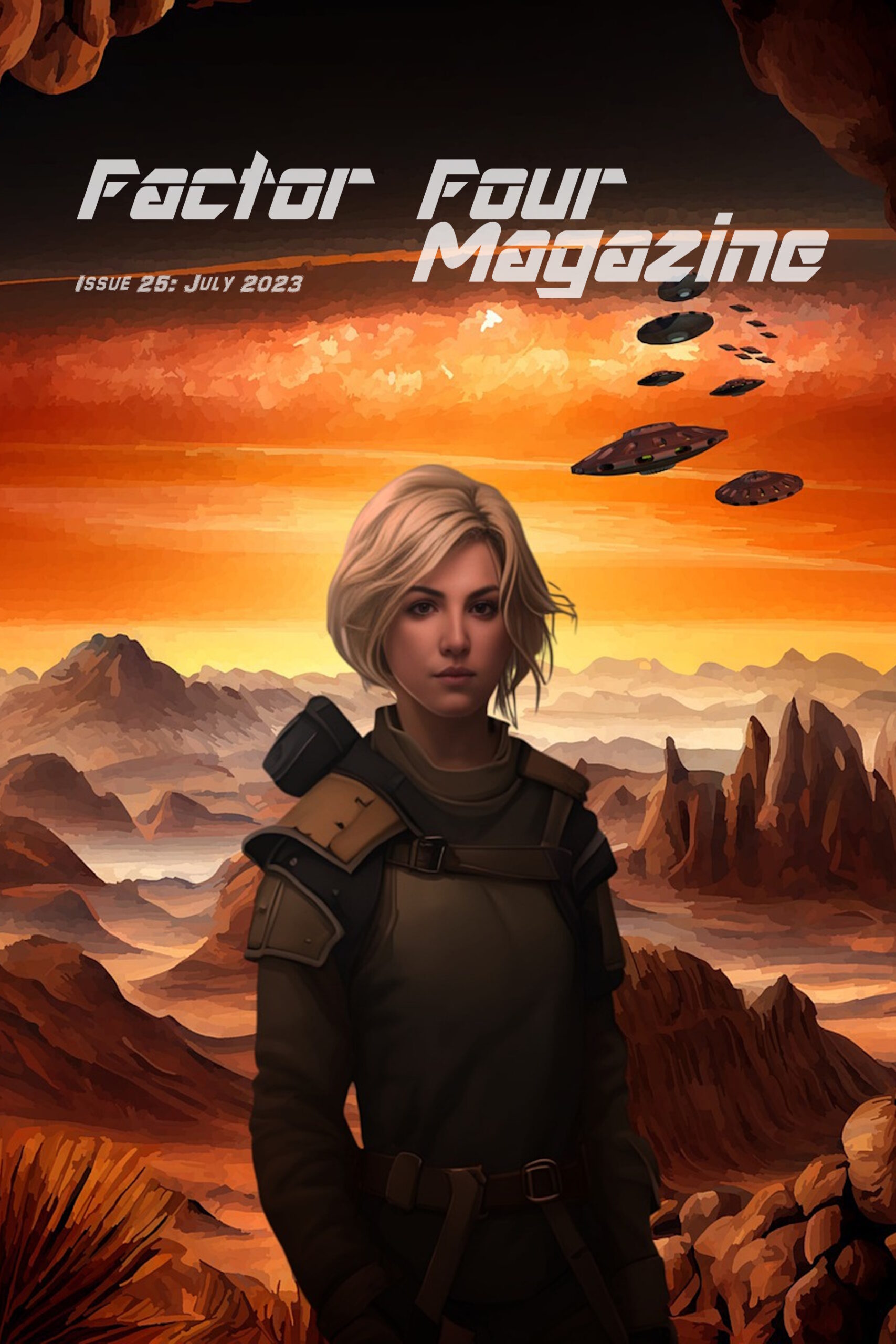
To be a priest in a traveling troupe was to wear a thousand masks, Diones knew. His cradle had been a costume trunk. He’d worn his first mask before an audience as one of the Young Lovers at the age of sixteen. Now past thirty, Diones was at the height of his powers, with a full, rolling voice that could be heard from behind the wooden faces that replaced his own. He could bring audiences to their feet with a gesture; drive strong men to tears with a word.
To allow the gods, spirits, and ancient heroes to be invoked, evoked, he had to empty himself before each performance. They needed a body to inhabit, and he had to offer his. But sometimes—more often than not—nothing happened. He remained empty, and had to pretend that the gods had filled him, making the performance a lie. And that emptiness persisted, making him wonder if he was anybody at all when he wasn’t wearing one of a thousand masks.
Sometimes, the masks were made of flesh, instead of gilded wood. Two nights ago, in the last village, there had been a young woman who’d been overcome after the performance, in which he’d brought the presence of the God of Light to the stage. She’d shyly sought his company, and then his bed. She hadn’t wanted him, he knew—she’d wanted a little piece of the Light. He’d obliged her. Tomorrow night, there might be a young man in the next audience who’d want a piece of the Lord of Tempests. And he’d oblige him, just the same.
Diones stared at the mask he’d wear tonight—Vakys, the Young God. God of revelry, patron of actors, and lord of madness. Of all the gods he let into his emptiness, he feared Vakys the most. The Young God was capricious, often not allowing himself to be invoked at all.
On the occasions when he came, Diones hated being him. Though he hated the emptiness more.
But when they’d arrived in this village, the shrine of Vakys hadn’t been swept, and clearly no offerings had been made in months, if not years. And old Xerios, senior priest and head of the troupe, had decided that they’d put on a performance of The Madness of the Women of Yant to remind people just what happened to those who failed to honor the Young God. And what Xerios spoke, the rest of them obeyed, no matter that his voice was too cracked and feeble now for any roles other than that of the cuckolded elderly husband, the wise old prophet.
You fear me, the black and gold mask said.
“Of course I do,” Diones whispered, relief mingling with fear in him. This might still be in his own mind, but the god was near. “Fear and respect are due to all the gods.” He glanced around, but no one else was here in the shrine with him, to hear whatever incipient madness the god might set into him.
But do you not love me? Have I not made you what you are?
“I am nothing,” Diones replied, the first words of the mantra that would clear his mind and reduce him to sacred emptiness before allowing the god into his body.
I’m hurt. I’ve given you so much, and you call yourself nothing.
“I am no one.” Diones continued doggedly, calling up the well of emptiness within.
Would you like to be someone else? Isn’t that the whole core of your craft? Pretending to be other than what you are?
“I am emptiness. Pour yourself into me. Let me be your vessel in this sacred space.”
Sacred. Twelve creaking boards laid before a shrine that hasn’t seen fire or libation in years, where the locals have penned sheep in the winter, rather than acknowledge my name. The voice turned wheedling. What would it take to make you love me, Diones? Would you like to be someone new? All it would take is going back and unmaking a few key decisions in your life. And then, you wouldn’t be empty. You’d be a farmer somewhere. A priest in one of the city temples, not on the road showing the tales of the gods six nights a week to disinterested audiences. You’d have a wife, children. Wouldn’t it be nice?
Diones took a breath. This is why he hated being Vakys. The potential for madness always clung so near. “You can’t walk back into the past and change things,” he said out loud.
Can’t I?
“I can’t. The only way through is forward. One day, one role, one mask at a time.”
And in thirty years, when your voice is reedy, your body weak, and all you’re good for is the role of the foolish old husband in a comedy, or a wizened old prophet in a tragedy, what then, hmm? When you’ve spent your entire life as someone else? When you’ve spent all your life perfecting emptiness?
He hated the Young God for articulating his doubts. For setting his mind into rebellion against the art that he needed to engage in. He could hear the others on stage already, the women keening that their city had been overrun by wild beasts and that they needed to defend themselves. The men crying out in pain as, in their madness, the women slaughtered them, thinking them to be beasts. All of them, waiting in their masks for him to enter the stage as the god and take the madness he’d bestowed away—madness used to punish the men for their disbelief in him, Zakys, the Young God—
And with an exhale of relief and terror alike, Diones felt his emptiness filled with a whisper of, Shall we show these disbelievers what madness looks like? and he rode his legs like stilts towards the creaking boards.
The audience knew fear. Then they knew blood. Last, they knew madness. But at least for tonight, Diones’ emptiness was filled.

